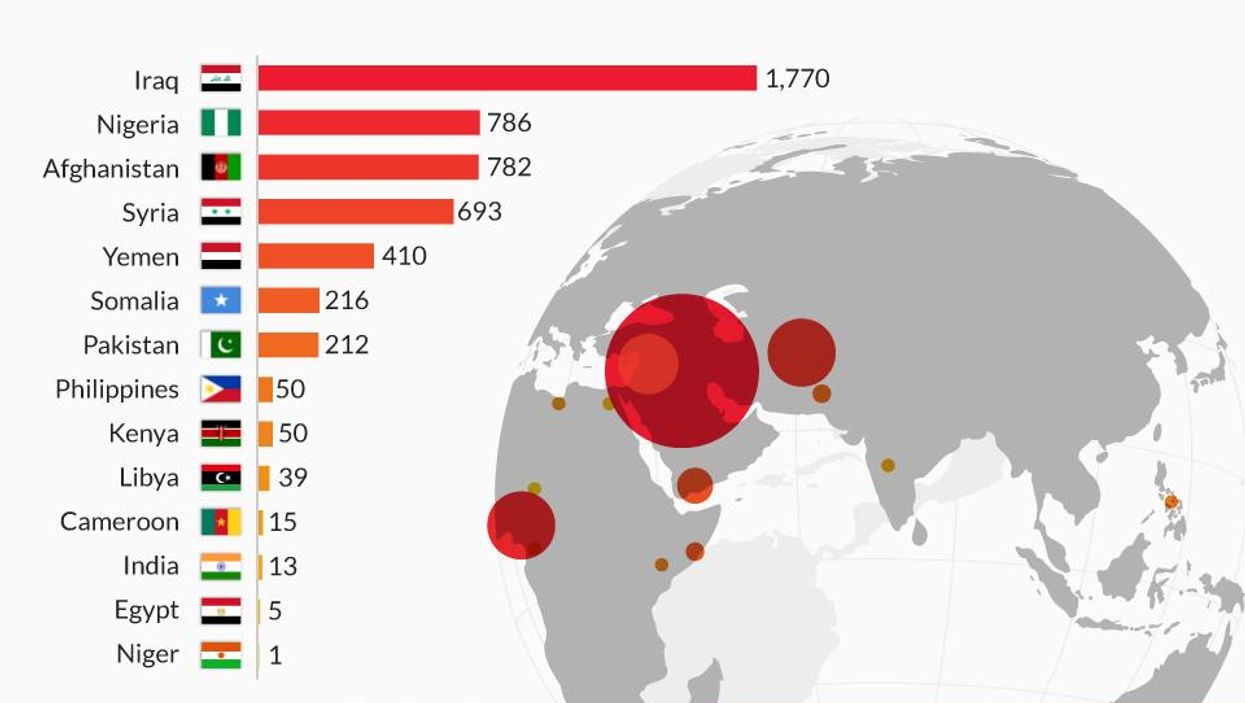News
Evan Bartlett
Dec 11, 2014

In the month of November 2014, there were 5,042 deaths as a result of 664 reported jihadist attacks in 14 countries across the world, new research claims.
Broken down, this data represents 22 attacks and 168 fatalities on average each day – equivalent to three attacks on the scale of the London Underground bombing from 2005, as Peter Neumann who was involved in the research points out.
These figures have been calculated by the International Centre for the Study of Radicalisation (ICSR) at King’s College London in collaboration with the BBC World Service.
The overall picture is that of an increasingly ambitious, complex, sophisticated and far-reaching movement.
Though comparisons are difficult, it seems obvious that the jihadist movement - which, only three years ago, everyone expected to be in a state of terminal decline - are stronger than ever, and that countering them will be a generational challenge.
- Peter Neumann, ICSR director
The above chart, created by Statista, shows the 14 countries affected – Iraq, Nigeria, Syria and Afghanistan accounted for 80 per cent of the total death toll.
In total, 16 different jihadist groups claimed responsibility for these attacks with Isis (who call themselves the Islamic State) responsible for the most – 2,206 deaths, from 308 attacks.
The deadliest single attack was carried out by Boko Haram on the Grand Mosque at Kano, in Nigeria on the 29 November - killing 120.
In carrying out this research, the team hoped to "produce an estimate of the scale and geographical distribution of reported deaths caused by jihadist groups, networks, and individuals".
More: The 10 countries where terrorist attacks kill the most people
Top 100
The Conversation (0)













